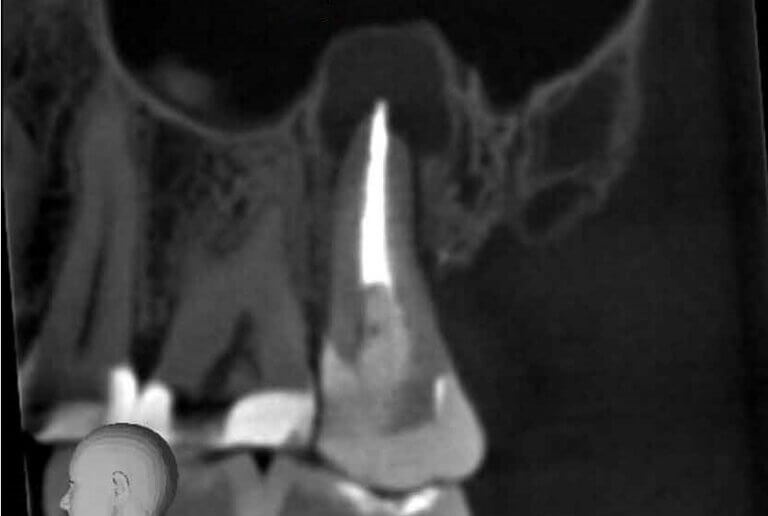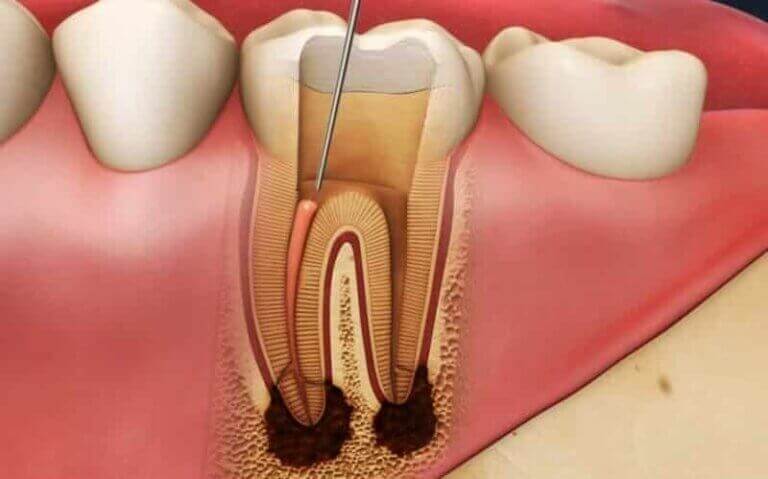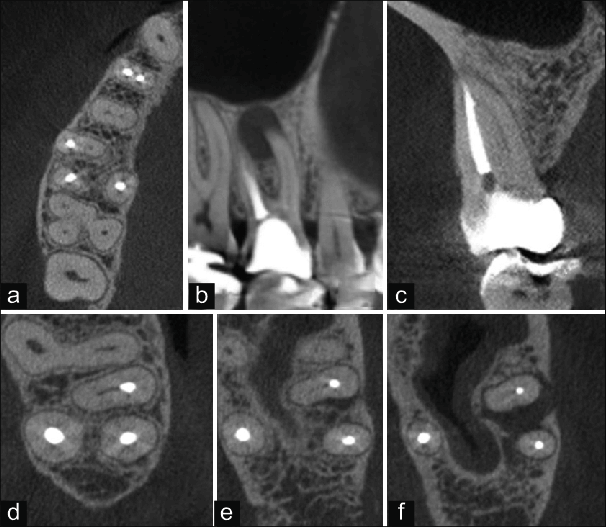CBCT Scans For Root Canal Treatment

In the ever-evolving landscape of modern endodontics, Cone Beam Computed Tomography (CBCT) has emerged as a powerful tool, offering unparalleled insights into the intricate structures of teeth. In the context of root canal treatments, CBCT scans play a pivotal role, providing clinicians with three-dimensional imagery that goes beyond conventional radiography. Before you deciding on whether a CBCT Scan for Root Canal Treated Teeth is right for you, there are some things you should know:
Table of Contents
If you have any further questions about CBCT Scans at Oral Radiology Toronto, please contact us.
What Are CBCT Scans?
Cone Beam Computed Tomography (CBCT) is a revolutionary x-ray imaging technology, providing three-dimensional views of the patient’s dental anatomy, including teeth, bones, nerves, and surrounding tissues. Unlike traditional two-dimensional X-rays, CBCT captures high-resolution, cross-sectional images by utilizing a cone-shaped beam of ionizing radiation.
In the context of root canal treated teeth, the result is a detailed and accurate representation of the teeth in question, enabling dental professionals to assess anatomical structures of the tooth root system with precision. CBCT scans play a crucial role in the field of endodontics, serving as an indispensable tool for diagnosing, treatment planning, and executing complicated endodontic procedures such as root canal retreatment and apicoectomies.
What Is Root Canal Treatment?
Root canal treatment, also known as endodontic therapy, is a dental procedure designed to address issues within the pulp of a tooth. The pulp, located in the center of the tooth and its roots, contains nerves, blood vessels, and connective tissues. When the pulp becomes infected or inflamed due to factors such as deep decay, trauma, or extensive dental procedures, a root canal becomes necessary to save the tooth and alleviate pain.
During a root canal treatment, the dentist or endodontist removes the infected or damaged pulp, cleans and disinfects the root canals, and then fills and seals them. This process effectively prevents further infection and preserves the natural tooth structure. While traditional radiographs have been the standard for assessing the success of root canal treatments, the advent of CBCT scans has elevated the precision and diagnostic capabilities in evaluating the intricacies of the treated tooth. This section will explore the fundamentals of root canal treatment, emphasizing the importance of accurate diagnosis and thorough assessment through CBCT imaging for optimal patient outcomes.
Endodontists offer a range of other procedures tailored to address specific dental issues. Root canal retreatment is performed when a previously treated tooth shows signs of persistent infection or incomplete healing. In this procedure, the tooth is reopened, and the root canals are cleaned and sealed again. CBCT scans play a crucial role in identifying complexities contributing to initial treatment failure. Another endodontic procedure is the Apicoectomy, a surgical intervention for persistent infections at the root tip. This surgery involves removing infected tissue and a portion of the root tip, with CBCT scans aiding in precise pre-surgical planning. Together, these procedures highlight the evolving landscape of endodontics, providing effective solutions for preserving natural teeth and maintaining optimal oral health.

Why Do I Need A CBCT Scan For Root Canal Treated Teeth?
The integration of Cone Beam Computed Tomography (CBCT) scans into endodontics has become increasingly essential, offering clinicians a wealth of advantages that significantly impact patient care. They provide a comprehensive three-dimensional view of the treated tooth and its surrounding structures, enabling practitioners to identify subtle anatomical complexities that may be overlooked with traditional 2D radiographs. With CBCT imaging, your dentist can better identify these problems that affect the success of root canal treatment:
- Persistent Infections: Despite the meticulous nature of root canal treatments, infections may persist or reoccur in some cases. This can be attributed to various factors, such as incomplete removal of infected tissue, the presence of complex canal systems, or the development of new infections over time. Regular monitoring and the use of advanced diagnostic tools like CBCT scans are crucial for identifying and addressing persistent infections promptly.
- Fractures: Root canal treated teeth, particularly those with extensive decay or a history of trauma, may be prone to fractures. The removal of the dental pulp during the root canal procedure can weaken the tooth structure, making it more susceptible to fractures. Understanding the risk factors associated with fractures and employing preventive measures are essential to ensure the long-term stability of the treated tooth.
- Resorption: Dental resorption, a process where the body absorbs the root structure, can occur in root canal treated teeth. This phenomenon may be triggered by factors such as inflammation, trauma, or underlying pathology. Early detection through regular follow-up appointments and imaging, including CBCT scans, allows for timely intervention to prevent further deterioration and preserve the tooth.
- Undetected Canals: The complexity of tooth anatomy, with variations in the number and configuration of root canals, can lead to the oversight of additional canals during the initial root canal treatment. Undetected canals may harbor bacteria and compromise the success of the treatment. The use of advanced imaging technologies like CBCT scans is instrumental in revealing hidden canal structures, ensuring a more thorough and successful root canal therapy.
The ability to visualize the tooth in three dimensions aids in precise treatment planning and helps clinicians make informed decisions about the best course of action for your root canal treatment, improving your chances of long-term success.

How Much Does A CBCT Scan Cost For Root Canal Treated Teeth?
At Oral Radiology Toronto, we provide quick and convenient dental CBCT scans for busy dentists and patients in the downtown Toronto area. Our CBCT scans are useful for assessing the teeth, their supporting structures, the mandible and maxilla up to the floor of the nose.
Our competitively priced dental CBCT scans are professionally reviewed and interpreted by a Canadian licensed Oral Radiologist.
Prices are based on the size of CBCT volume:
- Small Field CBCT (most dental cases; 5x5cm): $227
- Medium Field CBCT : $306.45
- Large Field CBCT (8x8cm): $388.50
- Panoramic X-Ray: $82
Normal CBCT report turnaround time is up to 10 business days. Expedited reporting (2 business days) is an extra $50.
Please note that we do NOT offer field of views larger than 8x8cm or imaging of structures outside the maxilla and mandible, such as the temporomandibular joints, paranasal sinuses, the cervical spine, the neck and the airway spaces (i.e. craniofacial CT scan)
How Do I Get A CBCT Scan For Root Canal Treated Teeth?
- For Referring Dentists: Refer a dental patient for a CBCT Scan using our Online Referral Form.
- For Dental Patients: Schedule a CBCT scan visit at Oral Radiology Toronto using our Online Appointment Booking System.
